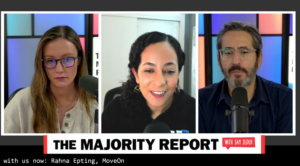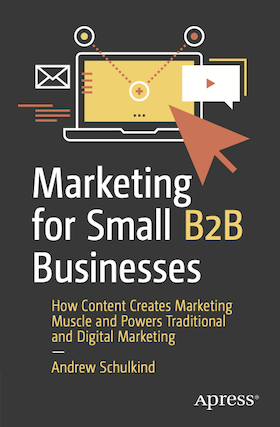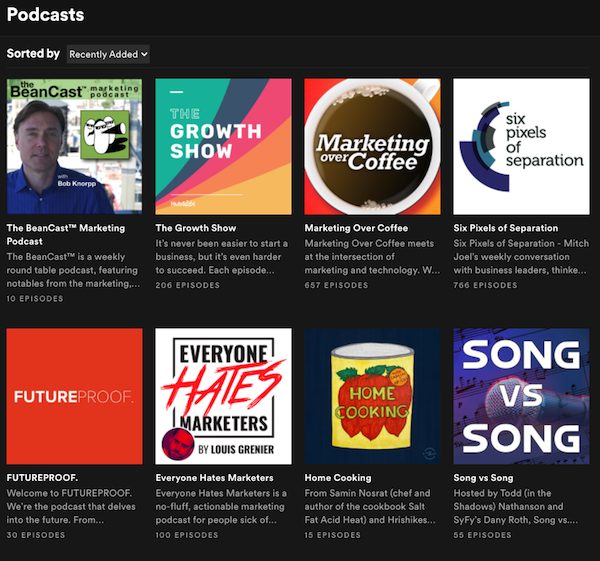We’ve worked with Terri Jenkins and her team at Clear Blue Sky Digital for more years than we can count. We’ve come to rely on her for her expertise and business experience, which make all the difference in search...
We’ve worked with Terri Jenkins and her team at Clear Blue Sky Digital for more years than we can count. We’ve come to rely on her for her expertise and business experience, which make all the difference in search engine marketing. It’s not just about the technical aspects.
I sat down with her recently — virtually, of course — and you can read the highlights of our conversation below.
Let’s start with the question that sparked this discussion. What are Core Web Vitals and why should small business owners care?
First of all, the basics here are still that Google wants to make sure that the end-user experience is good. So, with that in mind, it makes sense that they’d be focused on what they’re calling Core Web Vitals which are Speed, Responsiveness, and Visual Stability. They’re really just a more fully defined version of what they’ve been pushing for several years. Here’s what they’re looking for:
Speed is being defined by “LCP” or Largest Contentful Paint which is the time that it takes for the main content of a page to load. Faster is better and we want to shoot for 2.5 seconds or less. Responsiveness is measured by “FID” or First Input Delay which is how quickly a page becomes interactive. Again, faster is better and we want to shoot for less than 100 milliseconds. Visual Stability is measured by “CLS” or Cumulative Layout Shift which is the amount of unexpected layout shift (movement) of a page’s visual content. Google says a good score is less than 0.1.Why should small business owners care?
First of all, they should care because they want their site visitors to have a good experience and find it easy to do business with them.
Second, these are now part of how Google is ranking your pages. Poor user experience will impact your rank now and that will impact how many users find your site. Google is basically making you care about good customer experience.
Any thoughts on the move away from cookies and what that might mean short-term and over the long haul, both for small business marketers and for consumers?
OK, let’s start with what are they actually discontinuing? Data from third-party cookies will no longer be collected from your browser. First-party cookies will be unaffected. What this means is that the way that advertisers track you around the web (from site to site) is going away. That’s the third-party data that will stop. What it won’t change is that the data you collect from your own website visitors (such as via Google Analytics) will be unchanged.
Consumers probably won’t see a huge difference, since the big advertisers (Google, Facebook, Amazon, etc.) will have their own data to target with.
The biggest impact will be on small advertisers who rely on the third-party data to help refine their campaigns. The big companies with large budgets and other large tech companies will still be able to buy customer targeting data from big data operations like Oracle and Experian, but small companies won’t be able to afford it. Ultimately, what that will do is make advertising more expensive for small companies who will have to rely on less data and more testing. The best thing a small business can do is get educated on how to read their own analytics data, or to hire expert marketers to help them navigate the changes.
Any differences between B2B and B2C marketers?
I don’t really see any differences in how the changes will impact B2B vs. B2C companies. It’s really a matter of how savvy the marketers in those companies are. Do they know who their real target audience is? Are they able to confirm that, and track them via their own analytics? The answers may be a little harder to come by, but smart marketers will still be able to find their audiences.
It looks like ever more power (in the form of data) consolidates to the biggest players in the industry. Have you found that? How do you think that might play out?
Agreed. The big players like Google, Facebook, and Amazon are already sitting on huge amounts of data and will continue to gather it from their customers. It means that we, as advertisers, will be even more at their mercy. Eliminating third-party cookies will likely drive more businesses to advertise on the big platforms, in effect favoring one part of the web over another. Outside of the big players, the cost to advertise will probably go way up.
Any other words of wisdom for small business owners hoping to get more attention for their sites, whether through organic SEO or paid advertising?
As has always been true ? work hard to know who your customer is and what they need to find on your website. Make it easy for them to find you (good SEO); make it easy for them to know what you have to offer and how it helps them (good website copy, good ad copy, clear benefits, customer success stories); and easy for them to buy (clear customer path to purchase, multiple clear calls to action). And again as has always been true, test and refine, then test and refine again. Marketing isn’t a once-and-done thing. It’s ever-evolving and there’s always something new to learn and try!
The post Coming Changes for Digital Marketing From an SEO and PPC Expert appeared first on Andigo.











